The UK-based A Hop of Hope initiative is working to reintroduce the large marsh grasshopper in restored wetlands, helping this colourful insect reassume its valuable role in nature. Membership of the European Rewilding Network will enhance rewilding efforts.
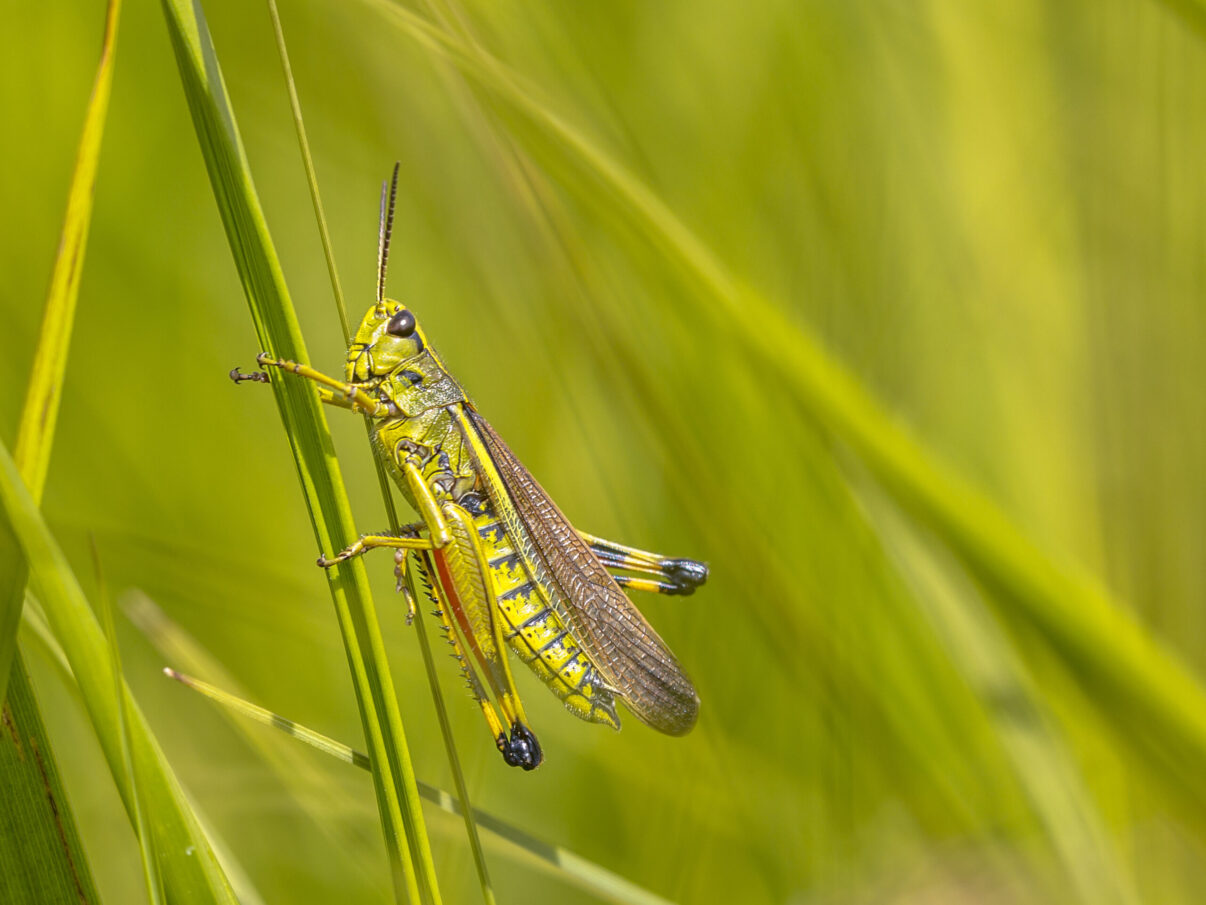
Dangerous decline
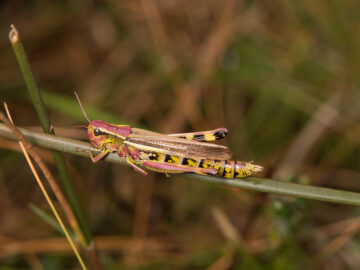
Due to their diversity and abundance, insects are of great ecological and economic importance within nature. Performing a wide variety of roles, they can act as pollinators, provide food for other species, control populations of other animals and plants (where species are carnivorous or omnivorous), disperse seeds, and break down and recycle organic matter. The fact that insect populations across the world are now in rapid decline is therefore of great concern, with intensive agriculture (involving heavy pesticide use) the main culprit, together with urbanisation and climate change.
In the UK, the decline of the large marsh grasshopper exemplifies this trend. Once widespread across the country, the loss and degradation of wetland areas, where this colourful insect lives exclusively, mean its range has shrunk considerably over the last 100 years. Now confined to a few select habitats in southern England, its disappearance from the landscape has negatively impacted food chains and the general health and resilience of wild nature. With climate change and habitat fragmentation continuing to affect the species, it may soon become extinct in the wild in the UK without human intervention.
Restoring food chains
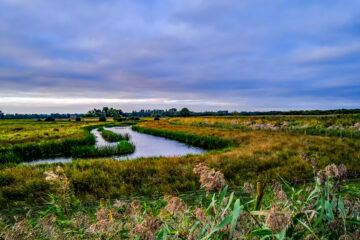
Kicking off in 2018, the A Hop of Hope initiative is working to address the decline of the UK’s large marsh grasshopper population by reintroducing the insect to wetlands in Norfolk, a county in eastern England that once supported the species. The restoration of many wetland sites in Norfolk over the last 30 years has created habitat where reintroduced grasshoppers can disperse and thrive once again. The initiative is led by Citizen Zoo, an organisation committed to rewilding and community engagement, in partnership with Natural England, the Norfolk Wildlife Trust, and the Wildlife Trust for Bedfordshire, Cambridgeshire & Northamptonshire.
“Following their reintroduction, the grasshoppers will be left to recolonise restored wetland habitat,” explains Lucas Ruzo, CEO of Citizen Zoo. “Acting as invertebrate grazers and a food source for insectivores, they will retake their place in the food chain and play a valuable role in nature.”
Sharing experience and expertise
A Hop of Hope has just become the European Rewilding Network’s (ERN) latest addition, with membership now totalling 71 members across 27 countries. ERN membership will allow Citizen Zoo to exchange valuable knowledge and experience with other leading European rewilding initiatives. With large marsh grasshopper populations declining in many European countries, Citizen Zoo believe sharing details of the A Hop of Hope initiative will support conservation of the species across the continent.
“We’re really looking forward to exchanging ideas and expertise,” says Lucas Ruzo. “Rewilding Europe has spearheaded the rewilding agenda across Europe and we are excited to be joining this pioneering family of rewilders.”
Citizen-led conservation
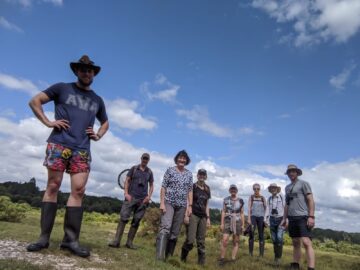
As the UK’s first community-led invertebrate reintroduction programme, A Hop of Hope has seen many large marsh grasshoppers reared and then released by UK citizens. By involving ordinary people in wildlife comeback, Citizen Zoo can reduce costs and simultaneously strengthen the connection between people and wild nature.
In 2018, with consent from Natural England and the UK’s Forestry Commission, Citizen Zoo collected a limited number of wild grasshoppers at several sites in the New Forest in southern England. Half were introduced directly to a wetland site in Norfolk. The rest were brought into captivity and allowed to breed in carefully controlled conditions, where they laid far more eggs than they would have done in the wild. These eggs were collected for hatching and home rearing the following summer.
A number of so-called “Citizen Keepers” – including local business, professionals, retirees and students living in London and Cambridgeshire – volunteered with Citizen Zoo to rear grasshoppers in their homes, collecting fresh food for them each day, keeping the insects healthy, and eventually releasing them into the wild. They have also supported monitoring efforts to ensure the initiative is delivering self-sustaining wild populations.
Delivering results
Including those insects reared through the home rearing programme, more than 2000 large marsh grasshoppers have now been released in Norfolk, with their first wild offspring emerging on a nature reserve managed by Natural England in the summer of 2020. Citizen Keepers will release a further 1,000 grasshoppers at two secret sites in Norfolk this summer.
Rewilding Europe itself recognises the value of harnessing the energy and expertise of citizens in rewilding initiatives, engaging citizens in the analysis of camera trap photos from the Central Apennines rewilding area, through the Zoological Society of London’s Instant Wild platform.
A platform for exchange
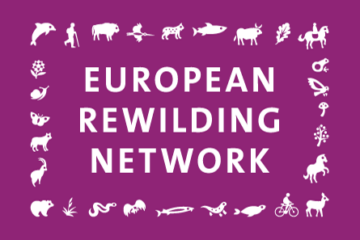 Today rewilding is gaining momentum as a progressive and effective approach to conservation in Europe. Underpinning this trend, the burgeoning European Rewilding Network continues to foster collaboration and amplify results.
Today rewilding is gaining momentum as a progressive and effective approach to conservation in Europe. Underpinning this trend, the burgeoning European Rewilding Network continues to foster collaboration and amplify results.
Founded by Rewilding Europe in 2013, the aim of the ERN is to enhance the efforts of each member by facilitating the exchange of skills, insight and experience. Members meet regularly, usually via webinar, while nature-based businesses can also apply to Rewilding Europe Capital, Rewilding Europe’s enterprise loan facility.
Rewilding Europe extends a warm welcome to all European rewilding initiatives that focus on practical, result-oriented rewilding and encourages them to apply for ERN membership.
